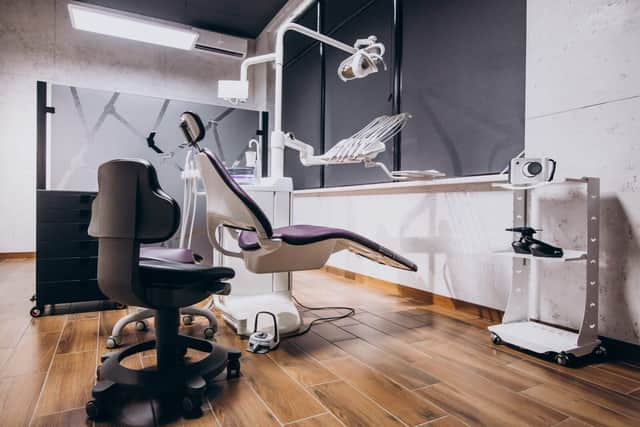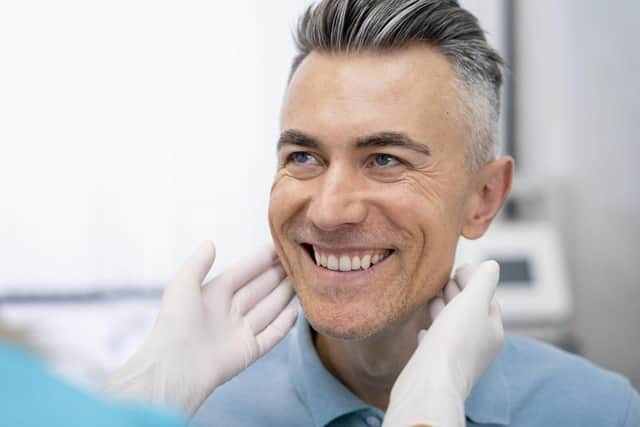Your Comprehensive Guide to Dental Crowns | Why You Should Consult Crown Dentists & Private Dentist
and live on Freeview channel 276
Are you dealing with dental issues that require more than just a simple filling? Perhaps you've heard about dental crowns but aren't quite sure what they entail or why consulting crown dentists or private dentists is essential. Look no further; this comprehensive guide aims to provide you with all the necessary information you need to understand dental crowns and why seeking professional help from crown dentists and private dentists is crucial.
Types of Dental Crowns
-
Metal Crowns: Made from metals such as gold alloy, nickel, or chromium, metal crowns are incredibly durable and suitable for back teeth where strength and durability are paramount. However, their metallic appearance makes them less desirable for visible teeth.
-
Porcelain-Fused-to-Metal (PFM) Crowns: These crowns combine the strength of metal with the aesthetics of porcelain. They are a popular choice for both front and back teeth, offering a natural appearance while providing durability.
-
All-Ceramic or All-Porcelain Crowns: Known for their exceptional aesthetics, these crowns are preferred for front teeth due to their ability to mimic the colour and translucency of natural teeth. They are a great choice for individuals concerned about the appearance of their smile.
-
Zirconia Crowns: Zirconia crowns are highly durable and biocompatible, making them an excellent option for individuals with metal allergies. They offer both strength and aesthetics, making them suitable for various dental restorations.


Why Consult Crown Dentists and Private Dentists?
-
Expertise and Specialisation: Crown dentists specialise in the placement and restoration of dental crowns. They possess the necessary expertise and experience to assess your oral health, determine the most suitable crown type for your needs, and ensure a precise fit.
-
Customised Treatment Plans: Crown dentists work closely with patients to develop personalised treatment plans tailored to their unique dental needs and goals. Whether you require a single crown or multiple crowns, they will guide you through the process and address any concerns you may have.
-
State-of-the-Art Technology: Private dentists, particularly those specialising in dental crowns, invest in advanced technology and equipment to deliver high-quality results. From digital impressions to computer-aided design and manufacturing (CAD/CAM), these tools ensure precision, accuracy, and efficiency throughout the crown fabrication process.
-
Comprehensive Care: Private dentists offer comprehensive dental care beyond just crown placement. They can address underlying dental issues, such as decay or gum disease, to ensure the longevity of your crowns and your overall oral health.
Taking Action: Your Next Steps
If you're experiencing dental issues that may require dental crowns, don't hesitate to take action. Here's what you can do:


-
Schedule a Consultation: Contact a reputable crown dentist or private dentist in your area to schedule a consultation. During this visit, they will evaluate your oral health, discuss your concerns, and recommend the most appropriate treatment plan.
-
Ask Questions: Don't be afraid to ask questions during your consultation. Inquire about the different types of crowns available, the procedure involved, and the expected outcome. A good dentist will take the time to address your concerns and provide clear explanations.
-
Follow Through with Treatment: Once you've decided on a treatment plan, follow through with the recommended course of action. Whether it involves preparing the tooth for a crown or undergoing any necessary dental procedures beforehand, prioritise your oral health and commit to the process.
-
Maintain Regular Dental Visits: After receiving your dental crowns, it's essential to maintain regular dental visits for preventive care and maintenance. Your dentist will monitor the condition of your crowns, address any concerns, and ensure your continued oral health.
Advertisement
Hide AdAdvertisement
Hide AdIn conclusion, dental crowns are a versatile and effective solution for restoring damaged or decayed teeth. By consulting crown dentists and private dentists, you can benefit from their expertise, personalised care, and access to state-of-the-art technology. Take action today to reclaim your oral health and smile confidently once again!